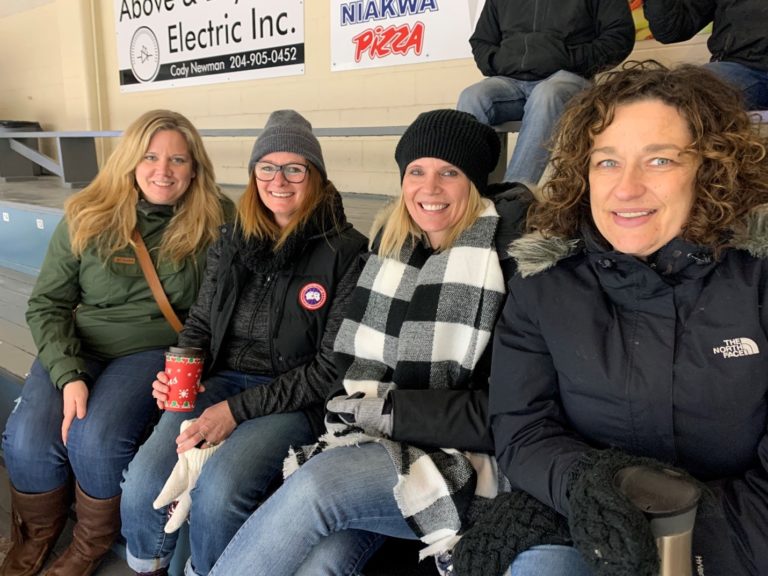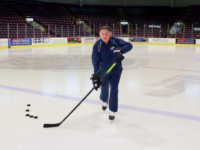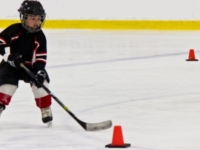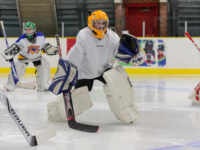Many kids don’t get the opportunity to participate in organized sports, whether due to wealth, health, family circumstances, or one of many other reasons.
The fact that you’ve enrolled your child in a minor hockey program means that they will be able to build relationships, develop skills, and make memories that will last them a lifetime. For that, you deserve a round of applause.
However, there are still many other ways in which you, as a hockey parent, can support your child in their minor hockey adventures. By doing things for your child like attending games, cheering for them, and watching games with them at home, you can make sure that your kid gets the most they possibly can out of their time as a hockey player.
Of course, there are circumstances that prevent you from going to every game and being able to help with the team fundraiser. Parental support in minor hockey isn’t about perfection, it’s about effort. Even doing a few items from the following list should be more than enough to earn you the trophy for “Best Hockey Parent.”
Here are 7 ways hockey parents can support their child:
1. Attend Games and Practices as Frequently as Possible
One of the greatest feelings in the world for a minor hockey player is scoring a goal and then immediately looking into the stands to see their smiling parent standing up and cheering them on. Your child may not always show it, but it means the world to them to have you in the stands as much as possible.
Of course, attending every single game and practice is difficult, if not impossible. There will be times where you’re tired or busy and won’t be able to make it out. Still, do your best to attend games as much as you can. You’ll be there to celebrate your child’s victories with them or to comfort them in their defeats, which will only make your relationship stronger.
2. Take on a Larger Role
Minor hockey is full of opportunities for parents to get involved in the action. You can volunteer as a part- or full-time assistant coach, help with team fundraisers and activities, or even offer to bring snacks for the team after their weekly game.
If you show effort in taking on a larger role on your child’s team, they’ll really appreciate it and will admire you even more: “My dad’s the coolest. He ran the fundraiser for my hockey team!”
If you want to do more for your child and their team but aren’t sure how to help, talk to the coach. There’s usually some extra role to be filled or work to be done that the coach will be thankful to have off their plate.
3. Show Interest, Especially on the Ride Home
By “show interest,” I mean talk to your child about their experience. Ask them how they like the sport or what they find the most fun. Ask them about the friends they’ve made or how they think they played or what they think they can work on for the future. Asking questions about someone’s activities or interests is one of the best ways to show that you care about them.
This kind of interest is especially important in the car ride home after a game or practice, when your child is still excited about being on the ice, and the memories of their performance are still fresh in their mind. If they had a successful practice or game, be excited along with them. If they’re disappointed about their performance, console them and get them ready to crush the next game!
4. Encourage Effort, not Results
Encouragement is one of the most crucial elements in supporting your child through minor hockey, but you need to make sure it’s the right type of encouragement.
Placing too much emphasis on winning games rather than trying hard will make your child think that to make you proud of them, they need to win. This creates a bad mindset, because whether your child wins or loses isn’t within their control. But their level of effort is within their control.
After every game and practice, do your best to give your child as much encouragement as you can, but focus it on their level of effort. If you know they gave it their all, praise them and celebrate a job well done, even if they lost the game. If you know your child could have tried harder, let them know and get them excited to improve for next time, even if they won the game.
5. Promote Friendship
Some of the biggest benefits that a kid can get out of organized sports are friendships. Yet, it’s tough to make friends, especially in an environment where everyone on a hockey team is competing against each other to stand out to their coach.
As a parent, do your best to encourage your child to make friends. Suggest that they compliment their teammates or ask them for advice. Once your child feels comfortable with the players on their team, consider hosting a pizza party or a sleepover from time to time. Playing on a team full of friends will make your child’s minor hockey experience much more comfortable and enjoyable. Plus, they’ll likely keep some friends long after they’ve finished with hockey altogether.
6. Avoid Making Tidal Waves
I get it.
It’s tough to watch the coach give other players extra ice time while your child sits bored on the bench. It’s tough to watch your child get pushed down by someone on the opposing team or made fun of by a teammate. But it’s also tough for your child to watch their parent fighting with their coach or with other parents in the stands.
I’m not saying don’t get involved at all. Just avoid making tidal waves that will come crashing down on your child and turn their hockey experience into a sopping mess.
If you have an issue with a coach, staff member, or another parent, make sure to always keep your child in mind with how you handle yourself. Do your best to resolve any issue in a civil and controlled manner. Sometimes, the embarrassment you cause your child with how you handle an issue can be worse than the actual issue, itself.
7. Be Punctual
One of the simplest ways that you can support your child at minor hockey is to be on time whenever you take them to a game or practice.
You should try to avoid being late to your child’s hockey functions for the same reason you should try to avoid “making tidal waves”: it’s embarrassing for your child. Whenever your child is late to a game or practice, they (1) feel like they let the coach down, (2) feel like they let their teammates down, and (3) feel like they missed some important drill or information. If you’re carpooling and driving several team members to the rink, it’s even worse.
Of course, as a parent, you can’t control everything that happens to you. Sure, the car might break down, or you might get that important call from your doctor when you’re heading out the door. Again, the important thing here is to try your best. Leave ample time for travelling to the rink plus emergency time if anything unexpected happens.
As a parent, you only have so much time and energy you can give to other people, especially if you have a partner, a full-time job, pets, and/or multiple kids you need to look after. Treating this as a checklist and trying to do everything perfectly is practically impossible.
Rather, pick and choose a few of the list items where you think you might be able to give your child a little more support. Maybe leave work early so you can watch a few more games every season. Maybe volunteer to help with the team’s upcoming away-game trip. Maybe make a conscious effort to ask your child a few more questions after each game.
However you decide to show your support, your player will appreciate it. Although they may be too young to thank you now, they’ll certainly thank you later!






